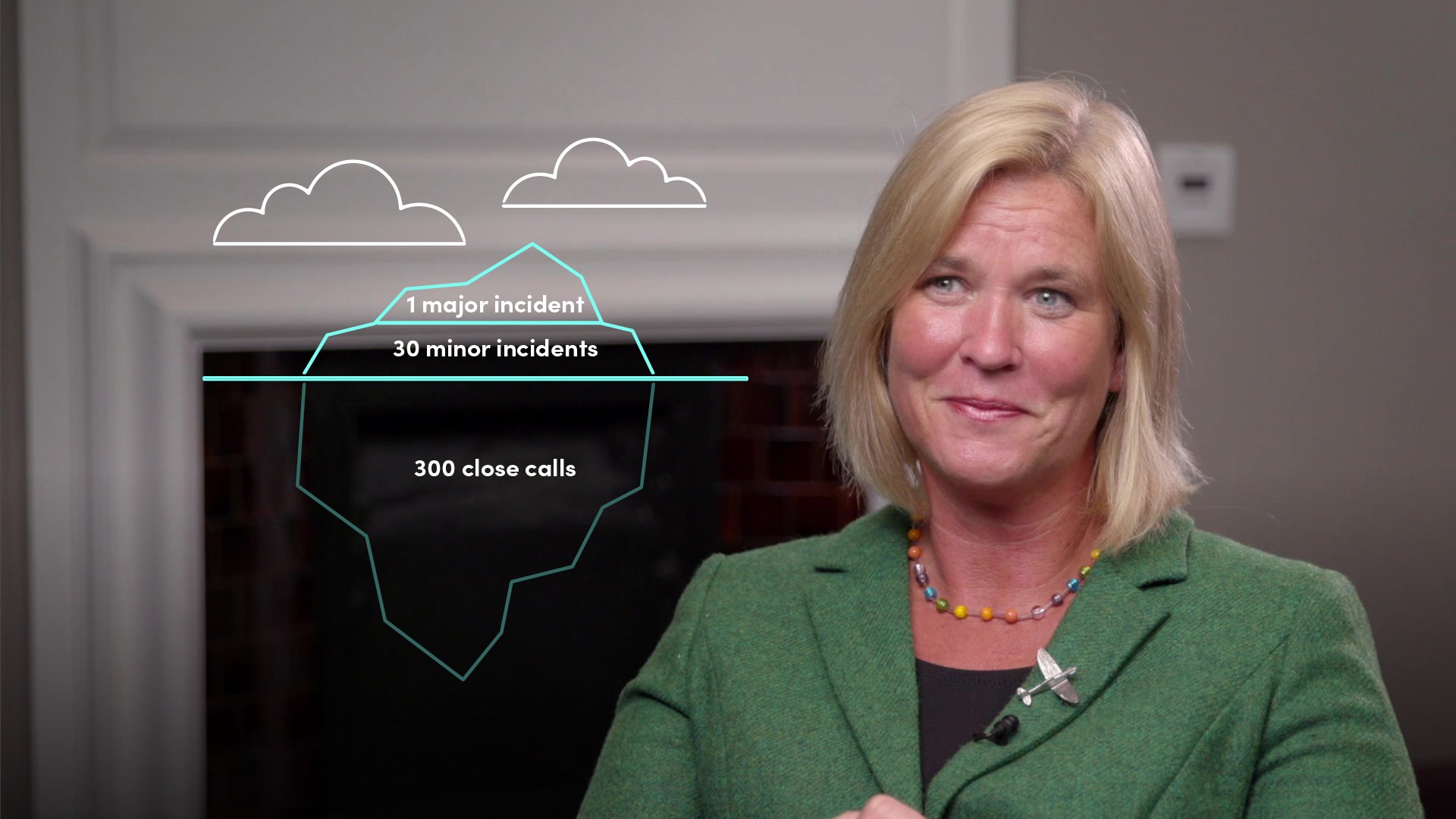
Error Management II

Mandy Hickson
25 years: Ex-RAF pilot & leadership expert
In this video, Mandy continues to unravel how to manage errors in the workplace. She talks about how vital it is to own errors and references the factors that may prevent people from owning up. The importance of adequate investigation into why errors are made is one of the key takeaways.
In this video, Mandy continues to unravel how to manage errors in the workplace. She talks about how vital it is to own errors and references the factors that may prevent people from owning up. The importance of adequate investigation into why errors are made is one of the key takeaways.

Error Management II
6 mins 10 secs
Key learning objectives:
Understand why people do not admit to making mistakes
Understand why a proper investigation into a mistake is important
Outline what causes a "blame culture in an organisation
Overview:
For every one major event that happens there will be 30 minor events and 300 near misses. So, rather than always waiting for the big event, the major disaster, if we try to capture the near misses we have a better chance of preventing the one major event from happening.
Why do people not admit to making mistakes?
- It could be that a blame culture exists, consequences, losing face, they don't think it's significant, “it's always been like that, it's too hard to get anything changed” (learned helplessness) or simply embarrassment
- Cognitive dissonance. It's a situation involving conflicting attitudes, beliefs or behaviours which lead to mental discomfort. It's when we start to spin the evidence to fit our beliefs rather than adapting our beliefs to fit the evidence
Why is proper investigation into a mistake important?
Proper investigation achieves two things:
- It reveals a crucial learning opportunity, which means that the systemic problem can be fixed, leading to meaningful evolution
- It has a cultural consequence too: professionals will feel empowered to be open about honest mistakes, along with other vital information, because they know that they will not be unfairly penalised—thus driving evolution still further
What causes ‘blame culture’ in an organisation?
As Professor James Reason once said ‘blame is a delicious emotion’ and the truth is that companies blame people all the time. It is not just because managers instinctively jump to the blame response. There is also a more insidious reason: managers often feel that it is expedient to blame. After all, if a major company disaster can be conveniently pinned on a few “bad apples”, it may play better in PR terms. “It wasn’t us; it was them!”
When is blame justified?
A culture that recognises that competent professionals make mistakes and acknowledges that even competent professionals will develop unhealthy norms (shortcuts, routine rule violations), but has zero tolerance for recklessness. This doesn’t mean that blame is never justified. If, after investigation, it turns out that a person was genuinely negligent, then punishment is not only justifiable, but imperative.
What does the ‘right culture’ mean for error management?
As people are at the heart of every organisation if the right culture exists then people gain confidence, they start to report their mistakes and then you have data. Then you can truly understand the actual risks rather than the perceived risks and make risk-based decisions.

Mandy Hickson
There are no available Videos from "Mandy Hickson"

